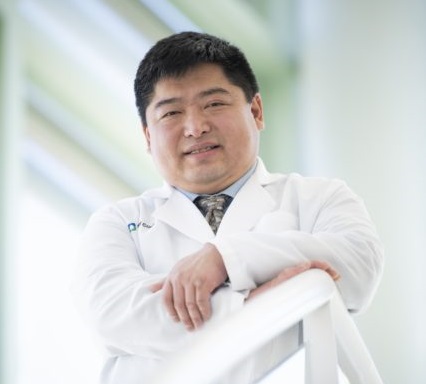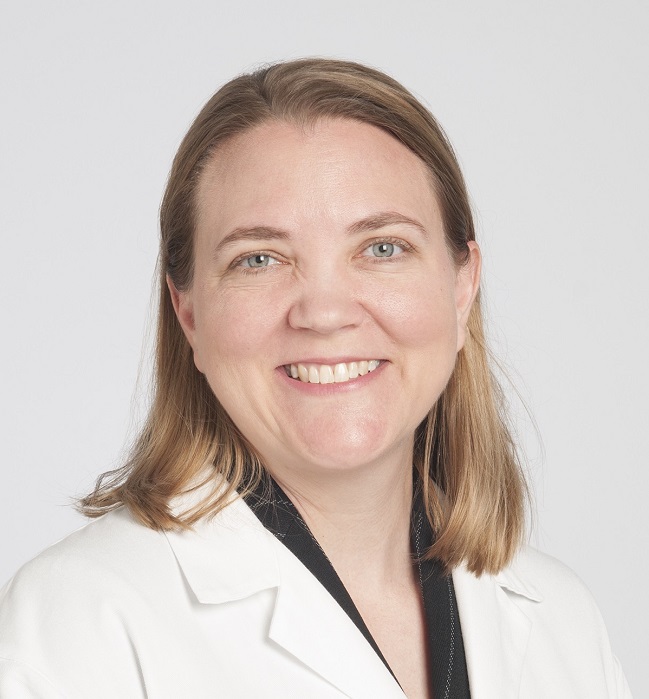A New Approach to Devastating Pediatric Cancers

Cleveland Clinic researchers have a promising lead in the fight against Ewing sarcoma and other pediatric cancers that have so far resisted immunotherapy treatments.
Timothy Chan, MD, PhD, and Peter Anderson, MD, are now making grant applications to pursue the hypothesis that fusion neoantigen vaccine-based treatments can prevent recurrences in patients with advanced Ewing sarcoma, a rare bone and soft tissue cancer that affects children and teenagers.
“There's a strong clinical need to try to improve therapies for Ewing sarcoma and other pediatric sarcomas,” Dr. Chan says. “No targeted therapy exists largely because there's no Achilles heel to these cancers. They’re not like lung cancer or breast cancer. When you look at Ewing sarcoma, there aren't very many mutations, except for this one translocation we found.”
It was just 2018 when the Nobel Prize for medicine recognized a bold new approach in cancer therapy: stimulating the body’s own immune system to attack cancerous cells. Dr. Chan came to Cleveland Clinic in 2020 to direct the Center for Immunotherapy and Precision Immuno-Oncology. Dr. Anderson came to Cleveland Clinic in 2015 and serves in Pediatric Hematology Oncology and Blood and Marrow Transplantation.
They hope to work with colleagues at Memorial Sloan Kettering Cancer Institute in New York, where Dr. Chan first noticed a possible avenue for research when he treated a 16-year-old with Ewing sarcoma. Ewing sarcoma happens when cells’ DNA change, creating abnormal cells that attack healthy tissue.
Dr. Chan and his team sequenced the patient’s tumor and found few mutations but one translocation cell that could be programmed to target her tumor cells. The treatment worked and removed her tumor.
“Many of these pediatric cancers have very few mutations, because they depend so heavily on these translocations. These are awkward genes, and they're in every cell. In a sub portion of these, these alterations are seen by the immune system. So, the concept we can develop is that we can start looking at patients with tumors, sequencing those tumors, and then make vaccines based on what we find,” Dr. Chan says.
Dr. Chan is an internationally-recognized pioneer in determining patient response to immunotherapy treatments. His team at the Center for Immunotherapy and Precision Immuno-Oncology studies the genetic factors underlying response and resistance to cancer therapies to make more treatments more effective against more forms of cancer. About 40-60% of cancer patients remain resistant to all kinds of therapy, including immunotherapy.
Dr. Chan says, “That's what gets me up every morning. My group here does not like to tackle easy questions. There are a lot of diseases that are under-studied, including Ewing and a lot of pediatric cancers. We are very excited to engage with folks and try to make a difference.”
He adds, “When I started training in oncology, melanoma was a death sentence. You had 5 year survival rates at maybe 1 to 2%--but now you see that has bumped up to about 50 to 60%. I would have never thought that that would be ever be possible. We are seeing these once in a generation, revolutionary changes. What a time to be working in the field and trying to help people and make a difference.”
An Early Career Scientist Empowers Patient Voices

Jeannette Messer, DVM, PhD, moved her research from the University of Chicago to Cleveland Clinic in 2018 to bring it closer to patients.
“Cleveland Clinic is a really good fit for me because what the clinic does better than pretty much anywhere else I've been is really focus on disease mechanisms and translating discoveries to patients,” Dr. Messer says. “We have some people that do basic research, but it's still in a context and usually as part of a team that's trying to apply it to clinical problems. That's a real strength that we have that is very different from most traditional academic research enterprises.”
She is early in her career but Dr. Messer is already on the leading edge of work about how microbiomes in the human intestine affect health. She has been focused on inflammatory bowel disease.
“We think we have found a microbial vulnerability as the immune system found it. We don't need to be smarter than evolution, we just need to be able to figure out what evolution has done,” Dr. Messer says. “All we did was follow the immune system.”
Dr. Messer began with a bachelor’s degree of science from the University of Michigan, a doctor of veterinary medicine from Michigan State University and then a master’s degree in veterinary clinical sciences from Ohio State University.
She completed her PhD in immunology from the University of Chicago in 2013. She did post-doctoral work at Chicago and then had a research faculty position there. When she began to look for her next career step, Cleveland Clinic was her first interview and an immediate fit.
“I’ve had such a strange path, but at Chicago I had a lot of close contact with a patient advocacy group for Crohn’s disease and colitis, and I think that that is something we really need to do as researchers. Listening to what the patients actually want is a perspective that I don't think researchers get most of the time,” Dr. Messer says.
She was appointed to Cleveland Clinic in 2018. Dr. Messer also serves as an adjunct assistant professor at Cleveland Clinic Lerner College of Medicine.
She has included a patient component in a recent grant application to further her research.
“I have seen how much it means to the patients to really feel connected to the work and to feel like there's hope. For them to know the people that are working on it humanizes it. You're not just a researcher,” Dr. Messer says.
“We depend on them so much to truly give of themselves, right? We're asking for samples. We're asking for them to give us information. And I think knowing who's doing it and what it's being used for is just so much more engaging than a very sterile consent form, which is otherwise what their interaction is. I want to make the patients feel more like they're involved in generating their own solutions. Their goal is to find a cure; our goal is to find a cure.”

